As technology continues to advance, businesses are constantly seeking new ways to streamline their processes and improve efficiency. No-code/low-code platforms have emerged as a solution to this problem, allowing businesses to create custom software applications without requiring extensive technical knowledge.
No-Code/Low-Code Platforms
No-code/low-code platforms are rapidly changing the landscape of software development. They allow businesses to create custom software applications without requiring extensive technical knowledge, giving them the ability to streamline their processes and improve efficiency. The platforms listed in this guide are some of the top options available for businesses to consider, offering a wide range of features and functionalities to meet their specific needs.
One of the main advantages of using a no-code/low-code platform is the ability to create custom applications quickly and easily. With drag-and-drop interfaces and pre-built components, businesses can create fully functional applications in a fraction of the time it would take to develop one from scratch. Additionally, these platforms often come with built-in integrations with other tools and services, making it easy to connect data and automate processes.
Another advantage of using a no-code/low-code platform is the ability to make changes and updates to an application quickly and easily. Without the need for extensive technical knowledge or coding experience, businesses can make modifications to an application on the fly, allowing them to respond to changing needs or requirements.
One potential drawback of using a no-code/low-code platform is the potential for limited customization options. While these platforms offer a wide range of features and functionalities, they may not always offer the level of customization that some businesses require. However, many platforms do offer the ability to extend functionality through APIs or custom code, giving businesses the flexibility they need to create truly unique applications.
Overall, no-code/low-code platforms are a powerful tool for businesses looking to improve efficiency, streamline processes, and stay ahead of the curve. With the options listed in this guide, businesses can find the platform that best fits their needs and ensure their success in the years to come. As technology continues to advance, it’s likely that we’ll see even more innovations in the world of no-code/low-code development, making it an exciting time for businesses and developers alike.
Here are the top 10 no-code/low-code platforms for business success in 2024:
1. Pipeliner
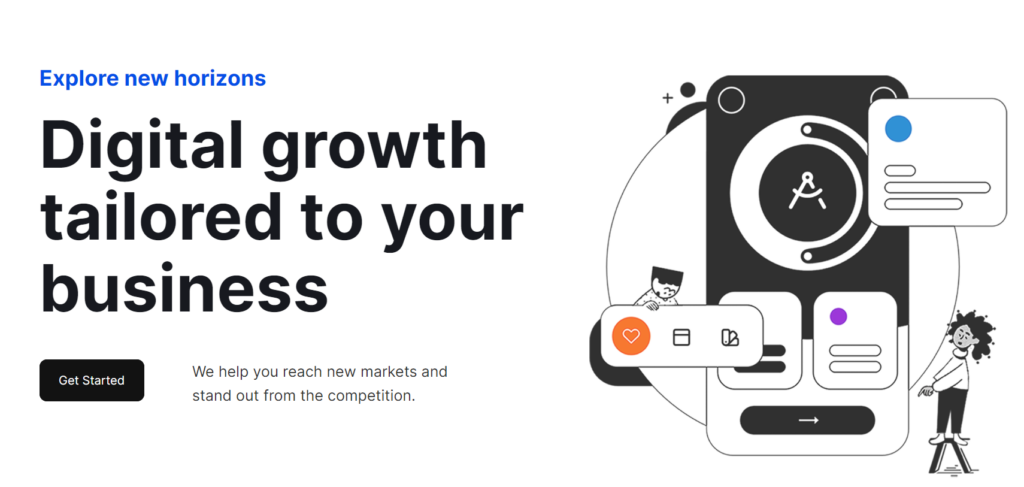
Pipeliner is a platform designed to help businesses manage their pipelines, connect with customers, and collect feedback. With pipeline automations, customizable features, and real-time analytics, Pipeliner is the perfect tool for any size business or team. The platform allows businesses to capture, qualify, route, and convert leads faster, and chat with customers in real-time to resolve issues and never miss important deadlines. Pipeliner’s engaging surveys also capture lead attention and provide valuable feedback.
With Pipeliner, businesses can manage their entire sales process within one platform. It also allows businesses to build a conversational interface that engages users and makes them feel like they are having a conversation with the forms. Moreover, it provides features that make it easy to personalize messages and automate communication processes. Additionally, it integrates with a wide range of third-party tools, such as email marketing platforms and CRM systems.
2. Salesforce Lightning
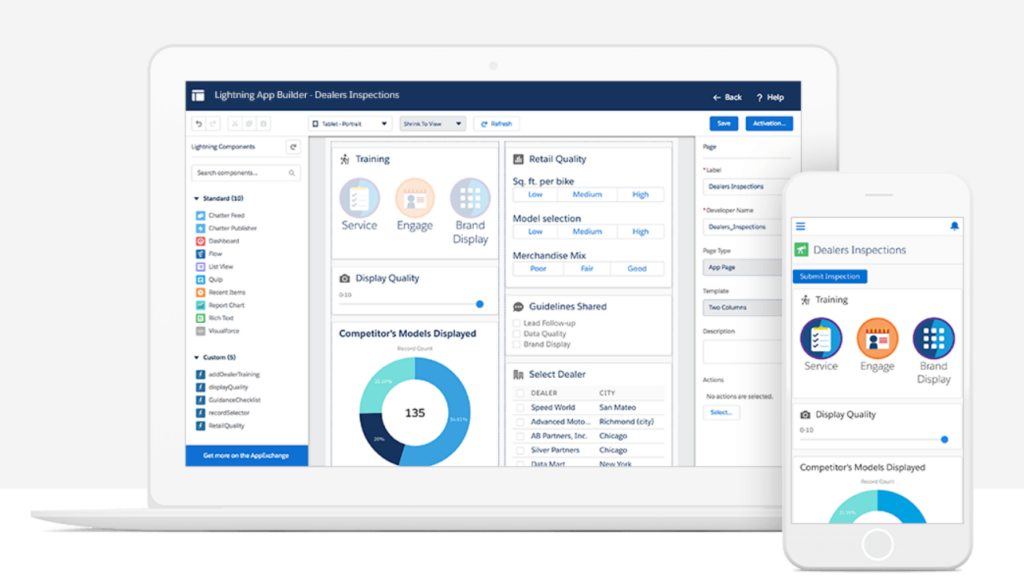
Salesforce Lightning is a powerful no-code platform that allows businesses to build custom applications and workflows. With its drag-and-drop interface and extensive library of pre-built components, Salesforce Lightning is an excellent choice for businesses looking to automate their sales, marketing, and customer service processes.
Salesforce Lightning has a drag-and-drop interface that makes it easy for businesses to create custom applications and workflows. It also has an extensive library of pre-built components that can be used to automate sales, marketing, and customer service processes. For example, businesses can use Salesforce Lightning to create automated lead management workflows, personalized marketing campaigns, and customer support portals.
3. Microsoft PowerApps
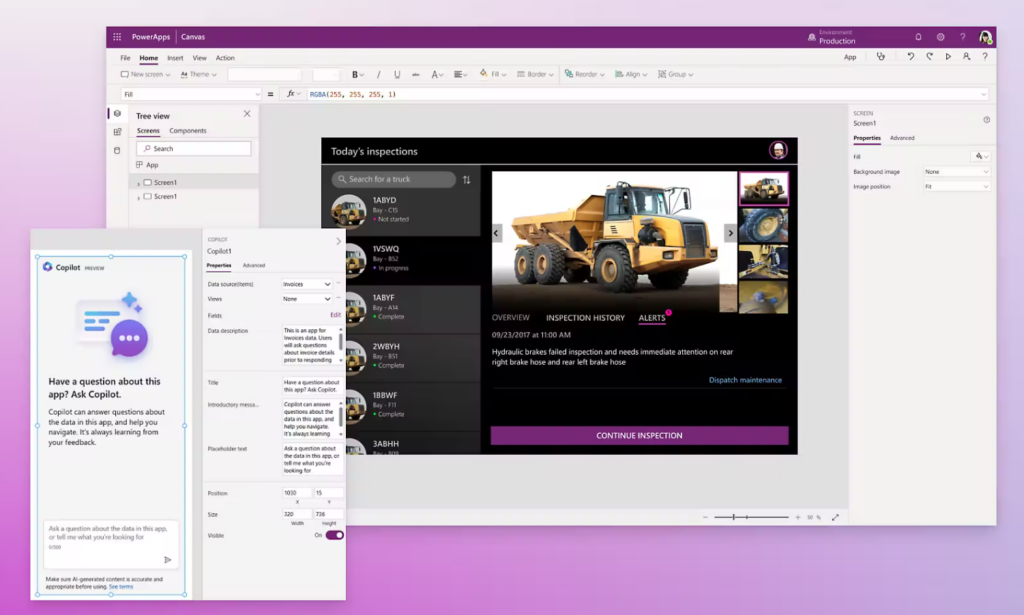
Microsoft PowerApps is a low-code platform that allows businesses to create custom applications and workflows using a simple drag-and-drop interface. With its integration with other Microsoft products, PowerApps is an excellent choice for businesses that already use Microsoft Office or Microsoft Dynamics.
For example, a business that uses Microsoft Office could use PowerApps to create a custom application for managing employee leave requests. The application could be integrated with Microsoft Outlook, allowing employees to submit leave requests directly from their email. Similarly, a business that uses Microsoft Dynamics could use PowerApps to create a custom application for managing customer relationships. The application could be integrated with Microsoft Excel, allowing sales representatives to track customer interactions and sales data in real-time.
4. Google App Maker
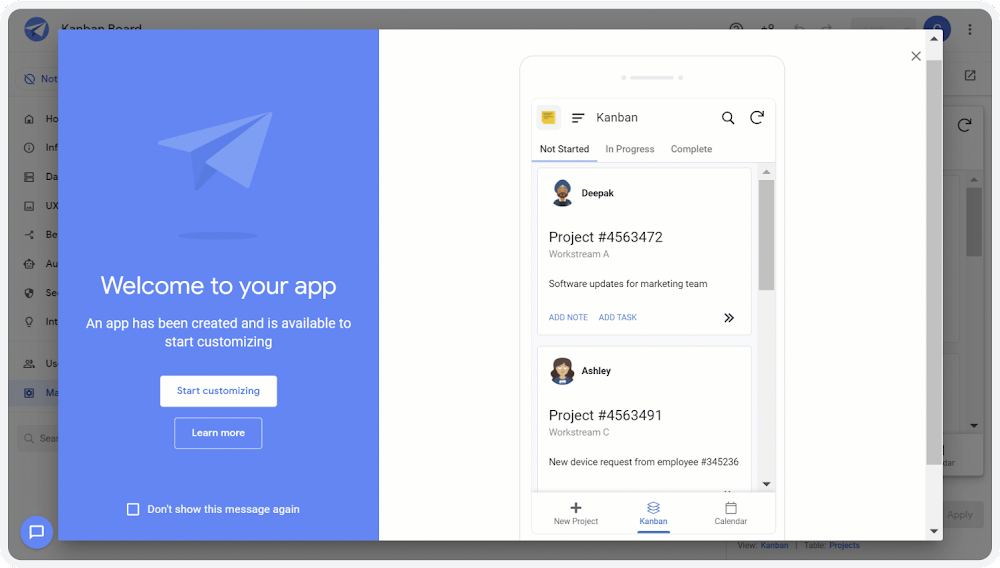
Google App Maker is a no-code platform that allows businesses to create custom applications and workflows using a simple drag-and-drop interface. With its integration with other Google products, Google App Maker is an excellent choice for businesses that already use G Suite.
Google App Maker can be used to create custom applications for a variety of business needs. For example, a business could use Google App Maker to create an application for managing employee schedules or tracking inventory. With its integration with other Google products, such as Google Sheets and Google Drive, businesses can easily share data and collaborate on projects. Additionally, because Google App Maker is a no-code platform, businesses can create custom applications without needing extensive technical knowledge or resources.
5. Airtable
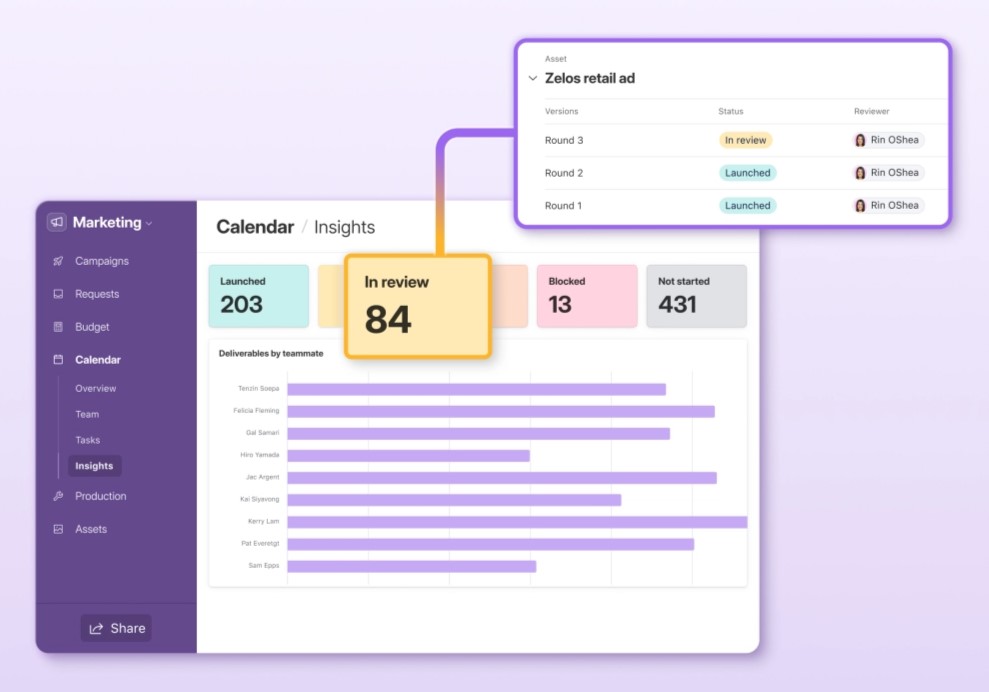
Airtable is a low-code platform that allows businesses to create custom databases and workflows. With its easy-to-use interface and extensive library of pre-built templates, Airtable is an excellent choice for businesses looking to organize their data and automate their processes.
Airtable can be used to create custom databases for a variety of business needs. For example, a business could use Airtable to create a database for tracking customer information or managing employee schedules. With its easy-to-use interface and extensive library of pre-built templates, businesses can quickly set up custom databases that meet their specific needs. Additionally, because Airtable is a low-code platform, businesses can create custom workflows and automations without needing extensive technical knowledge or resources.
6. Appian
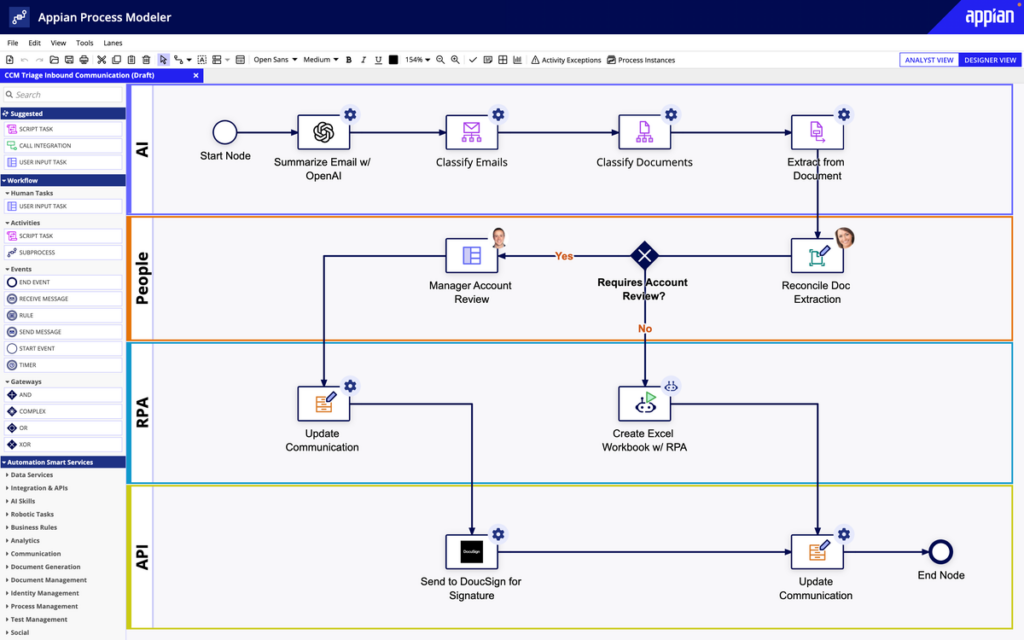
Appian is a no-code platform that allows businesses to build custom applications and workflows. With its drag-and-drop interface and extensive library of pre-built components, Appian is an excellent choice for businesses looking to automate their processes and improve efficiency.
Appian is an excellent choice for businesses looking to automate their processes and improve efficiency. For example, businesses can use Appian to create custom applications for managing employee onboarding, tracking inventory, or automating financial processes. With its drag-and-drop interface and extensive library of pre-built components, businesses can quickly and easily create custom applications that meet their specific needs. Additionally, because Appian is a no-code platform, businesses can create these applications without needing extensive technical knowledge or resources.
7. Quick Base
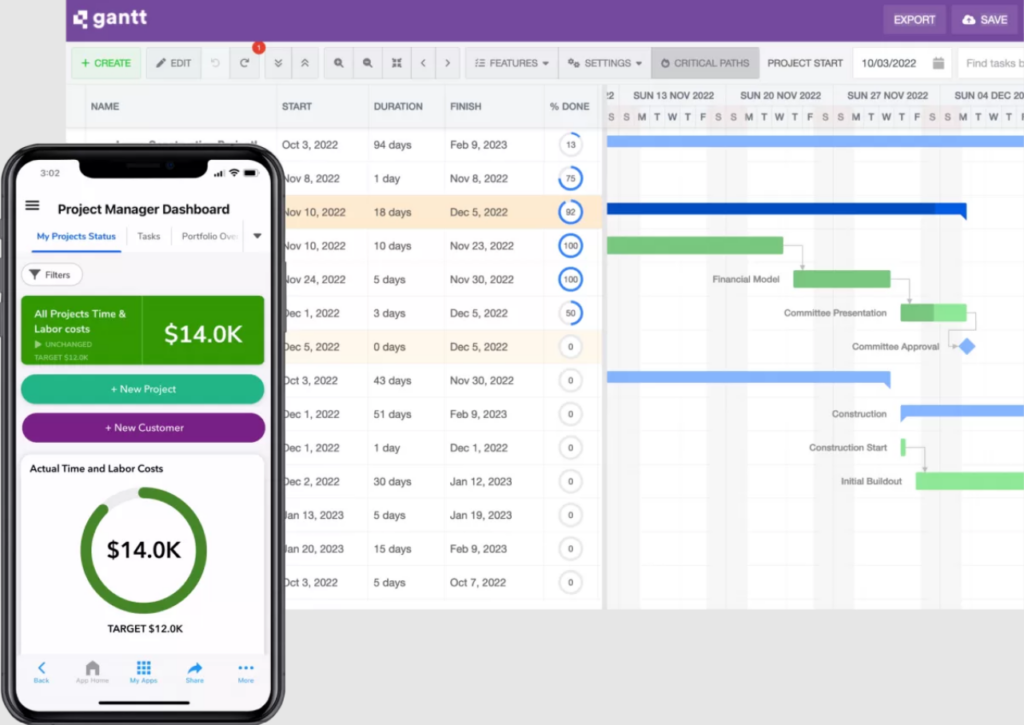
Quick Base is a low-code platform that allows businesses to create custom applications and workflows. With its easy-to-use interface and extensive library of pre-built templates, Quick Base is an excellent choice for businesses looking to automate their processes and improve productivity.
Quick Base can be used to create custom applications for a variety of business needs. For example, a business could use Quick Base to create an application for managing customer relationships or tracking employee performance. With its easy-to-use interface and extensive library of pre-built templates, businesses can quickly set up custom applications that meet their specific needs. Additionally, because Quick Base is a low-code platform, businesses can create custom workflows and automations without needing extensive technical knowledge or resources.
8. Mendix
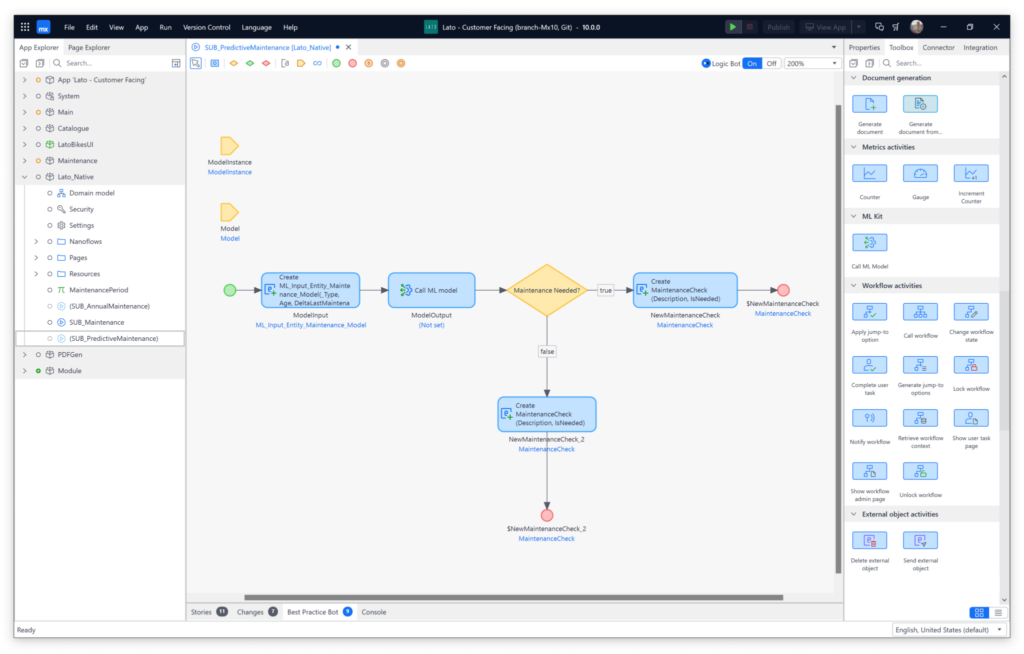
Mendix is a no-code platform that allows businesses to build custom applications and workflows. With its drag-and-drop interface and extensive library of pre-built components, Mendix is an excellent choice for businesses looking to automate their processes and improve efficiency.
Mendix is an excellent choice for businesses looking to automate their processes and improve efficiency. For example, businesses can use Mendix to create custom applications for managing supply chain logistics, tracking employee performance, or automating financial processes. With its drag-and-drop interface and extensive library of pre-built components, businesses can quickly and easily create custom applications that meet their specific needs. Additionally, because Mendix is a no-code platform, businesses can create these applications without needing extensive technical knowledge or resources.
9. Zoho Creator
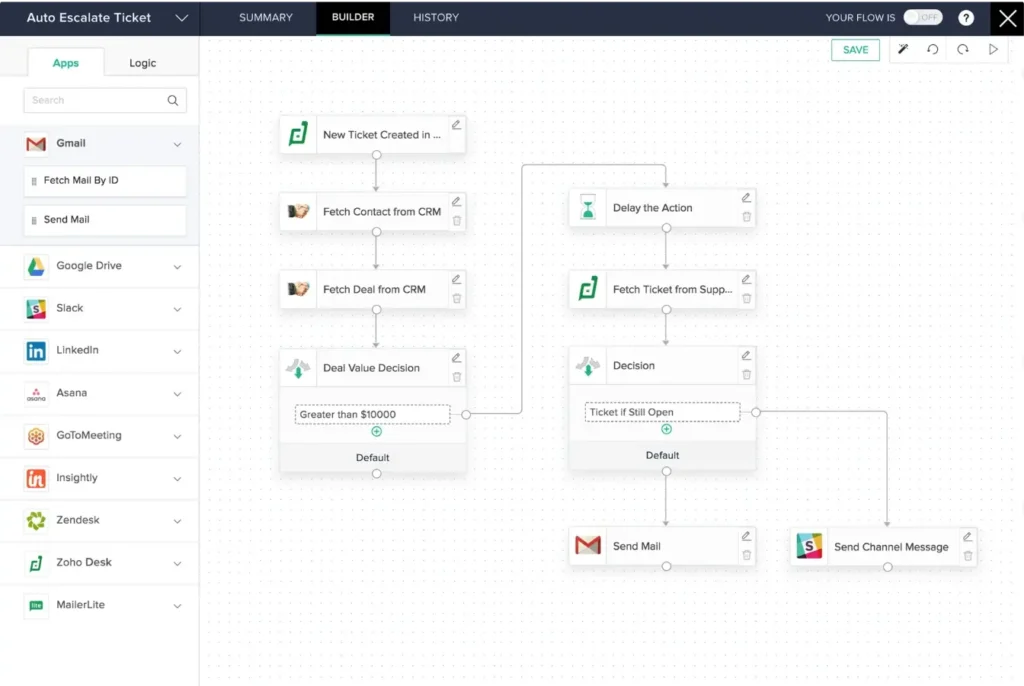
Zoho Creator is a low-code platform that allows businesses to create custom applications and workflows. With its easy-to-use interface and extensive library of pre-built templates, Zoho Creator is an excellent choice for businesses looking to automate their processes and improve productivity.
Zoho Creator can be used to create custom applications for a variety of business needs. For example, a business could use Zoho Creator to create an application for managing customer relationships or tracking employee performance. With its easy-to-use interface and extensive library of pre-built templates, businesses can quickly set up custom applications that meet their specific needs. Additionally, Zoho Creator’s low-code platform allows businesses to create custom workflows and automations without needing extensive technical knowledge or resources.
10. Bubble
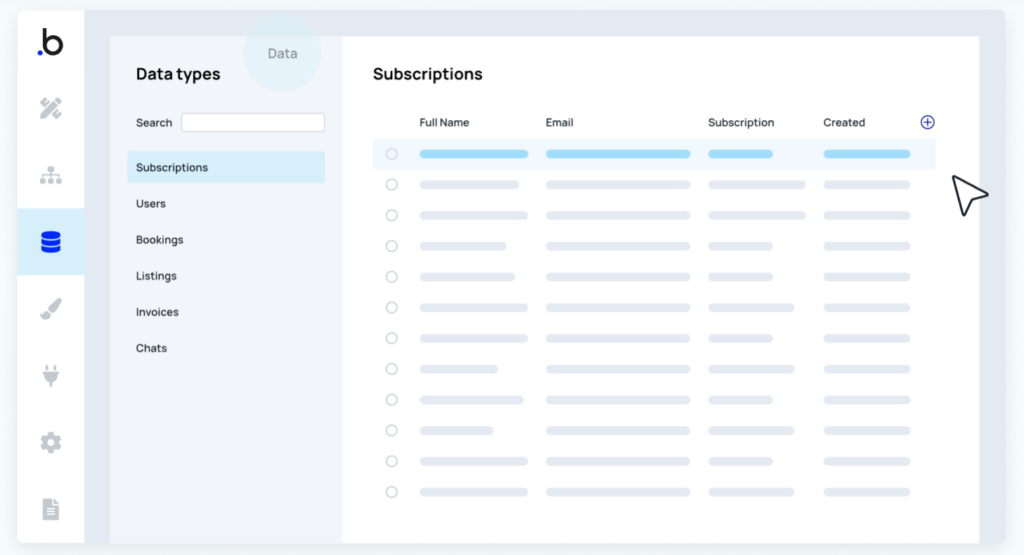
Bubble is a no-code platform that allows businesses to build custom applications and workflows. With its drag-and-drop interface and extensive library of pre-built components, Bubble is an excellent choice for businesses looking to automate their processes and improve efficiency.
Bubble can be used to create custom applications for a variety of business needs. For example, a business could use Bubble to create an application for managing employee schedules, tracking inventory, or automating financial processes. With its drag-and-drop interface and extensive library of pre-built components, businesses can quickly and easily create custom applications that meet their specific needs. Additionally, because Bubble is a no-code platform, businesses can create these applications without needing extensive technical knowledge or resources.
Conclusion
No-code/low-code platforms have become increasingly popular in recent years, as businesses seek to improve their productivity and efficiency. These platforms allow businesses to create custom software applications without needing extensive technical knowledge or resources. With the top 10 no-code/low-code platforms listed above, businesses will have a variety of options to choose from when looking to automate their processes and streamline their workflows. By embracing these platforms, businesses can stay ahead of the curve and ensure their success in 2024 and beyond.
By embracing these additional no-code/low-code platforms, businesses can further improve productivity. With a wide range of options available, businesses can find the platform that best fits their needs and ensure their success in the years to come.
Moreover, these platforms are not only useful for businesses but also for individuals who want to create their own applications. Whether you want to create a custom website, build a mobile app, or automate your personal workflow, these platforms provide an excellent starting point.
In conclusion, no-code/low-code platforms have become an essential tool for businesses and individuals alike. With their ease of use, flexibility, and powerful features, these platforms are poised to revolutionize the way we create software applications. By embracing these platforms, businesses and individuals can stay ahead of the curve and ensure their success in the years to come.
